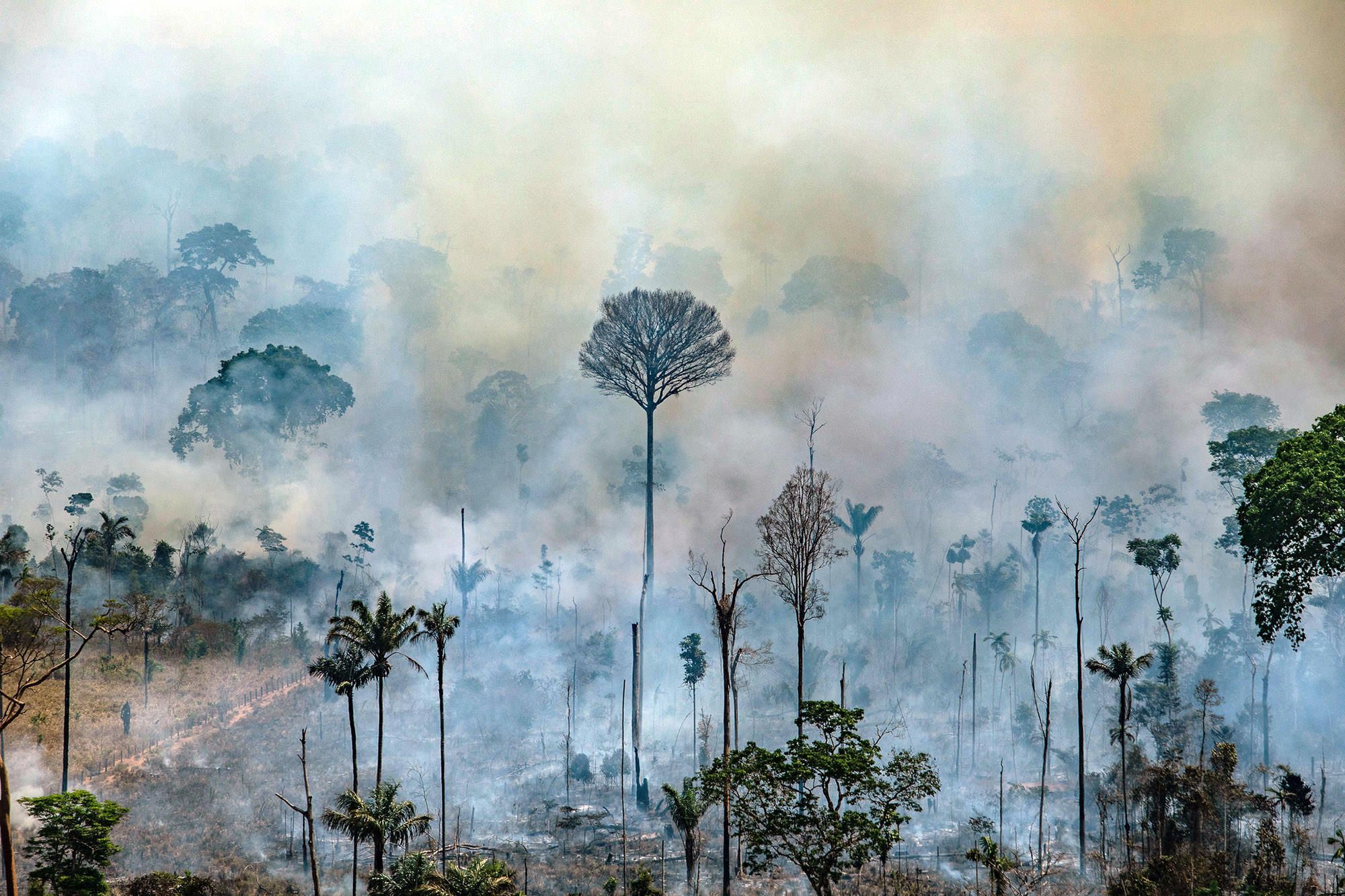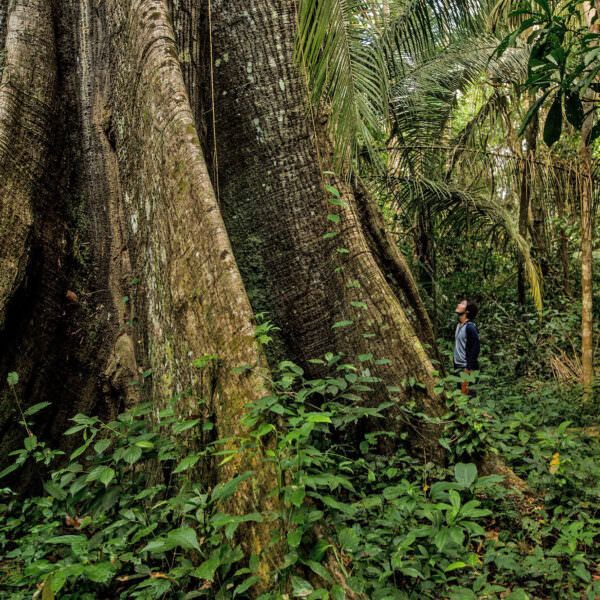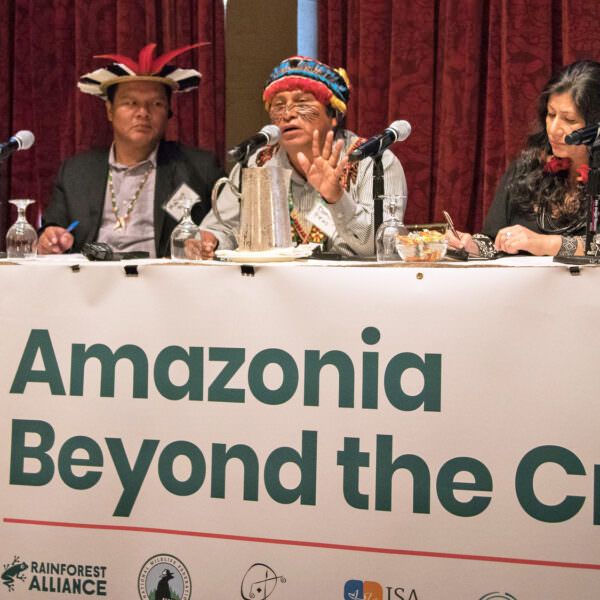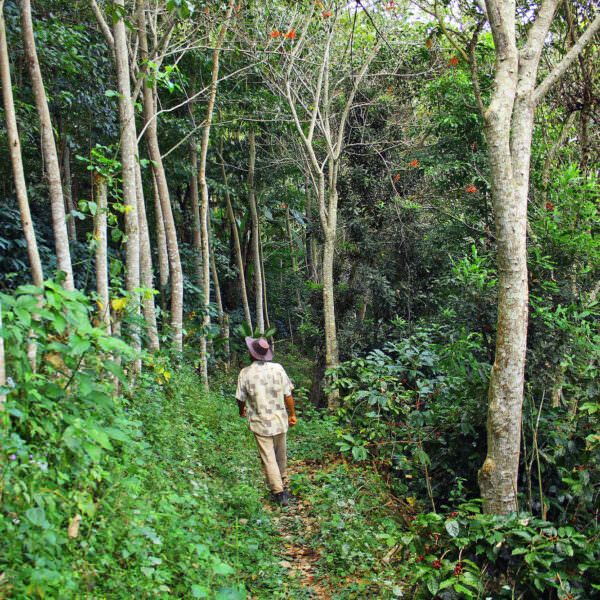The Rainforest Alliance's Work in Peru
Peru: Where indigenous knowledge, climate science, and global markets meet.
Home / Regions / South America / Page 11
Spanning nine South American countries and 7 million sq km (2.7 million square miles), the Amazon is the world’s largest forest and is home to more than 120 indigenous groups and one in 10 known species. One-fifth of all freshwater on the planet originates in the Amazon Basin. Unparalleled in its biodiversity, the Amazon is also critical to global climate stability.

Humans have razed some 20 percent of the Amazon rainforest over the last 40 years alone, and an additional 20 percent is at risk of being destroyed—a potentially catastrophic loss that would cause this vital ecosystem to unravel. Read our response to the forest fire crisis in the Amazon.
The most important impact of our work in high-risk regions of the Amazon—self-determination—is not quantifiable. However, we continually gauge the success of our approach by measuring both ecosystem health and the economic and social well-being of our partner communities.
![]()
in Brazil nuts exported from Madre de Dios, Peru
After working with the Rainforest Alliance for four years, communities in the Madre de Dios region of the Peruvian Amazon exported more than 4,000 metric tons of shelled Brazil nuts, representing a value of nearly US $31 million. Read the study
![]()
under sustainable management in South America
We’re working with forest communities, farmers, governments, and companies to conserve the Amazon Basin and protect its precious biodiversity. Together with our partners, we’ve brought 18 million acres (7.3 million hectares) under sustainable management.
This number includes Rainforest Alliance Certified agricultural land and FSC certified forest land, including land certified by our Brazilian partner, Imaflora. Data accurate as of March 21, 2018.
Stopping deforestation in the Amazon requires bold, multi-faceted strategies that center indigenous forest communities and support their self-determination. This approach characterizes our work in the Amazon, where we work with a wide range of communities and partners to cultivate a sustainable forest economy.

Peru: Where indigenous knowledge, climate science, and global markets meet.

Together with our allies, we have drafted a call to action to save the world’s largest and most important rainforest.

A family transformed their coffee farm into a resilient landscape—and improved their income.

The Rainforest Alliance announces a collaboration with GRAMMY® Award-winning artists Caetano Veloso and Lenine as well as renowned Brazilian artists Criolo, Emicida, Pretinho da Serrinha and Sistah Mo Respect for I’m Alive – Rainforest Alliance Sessions – Floresta da Tijuca. Featuring voice narrative by Brazilian supermodel and environmental ambassador Gisele Bündchen—who was recently appointed to the Rainforest […]

This report examines existing governmental incentives that promote sustainable production in the agriculture, forestry, and tourism sectors in eight Latin American countries: Argentina, Brazil, Chile, Colombia, Costa Rica, Ecuador, Mexico, and Peru. These laws and policies demonstrate a commitment to environmental stewardship in Latin America and provide a model for governmental incentives for sustainable production […]

Smallholder farmers suffer from a lack of credit access, but sustainability certification can help change that, according to a new study published by the Rainforest Alliance and funded by the Citi Foundation. To better understand smallholder farmers’ issues concerning financial administration and credit access and to better inform technical assistance packages, the study, entitled “Farmer […]

Working toward Cooperative Non-timber Forest Product Management: Integrating Economic, Institutional, and Ecological Analysis to Improve Livelihoods and Forest Conservation in the Western Amazon Region, Brazil Project Summary Researchers with Indiana University and Universidade Federal do Acre (UFAC) in Brazil examined the importance of non-timber forest products (NTFP) for supporting family income and promoting forest conservation […]... Continue Reading

A new study by Cenicafe, a Colombian research institute, finds that sustainable farming practices play a key role in improving the health of streams, benefitting the local communities and wildlife that rely on them as their primary source of water. By comparing water quality on Rainforest Alliance CertifiedTM coffee farms in Colombia with non-certified farms, researchers […]

Helping to protect mammals, birds, snakes, lizards and spiders can be as simple as enjoying your morning cup of coffee.